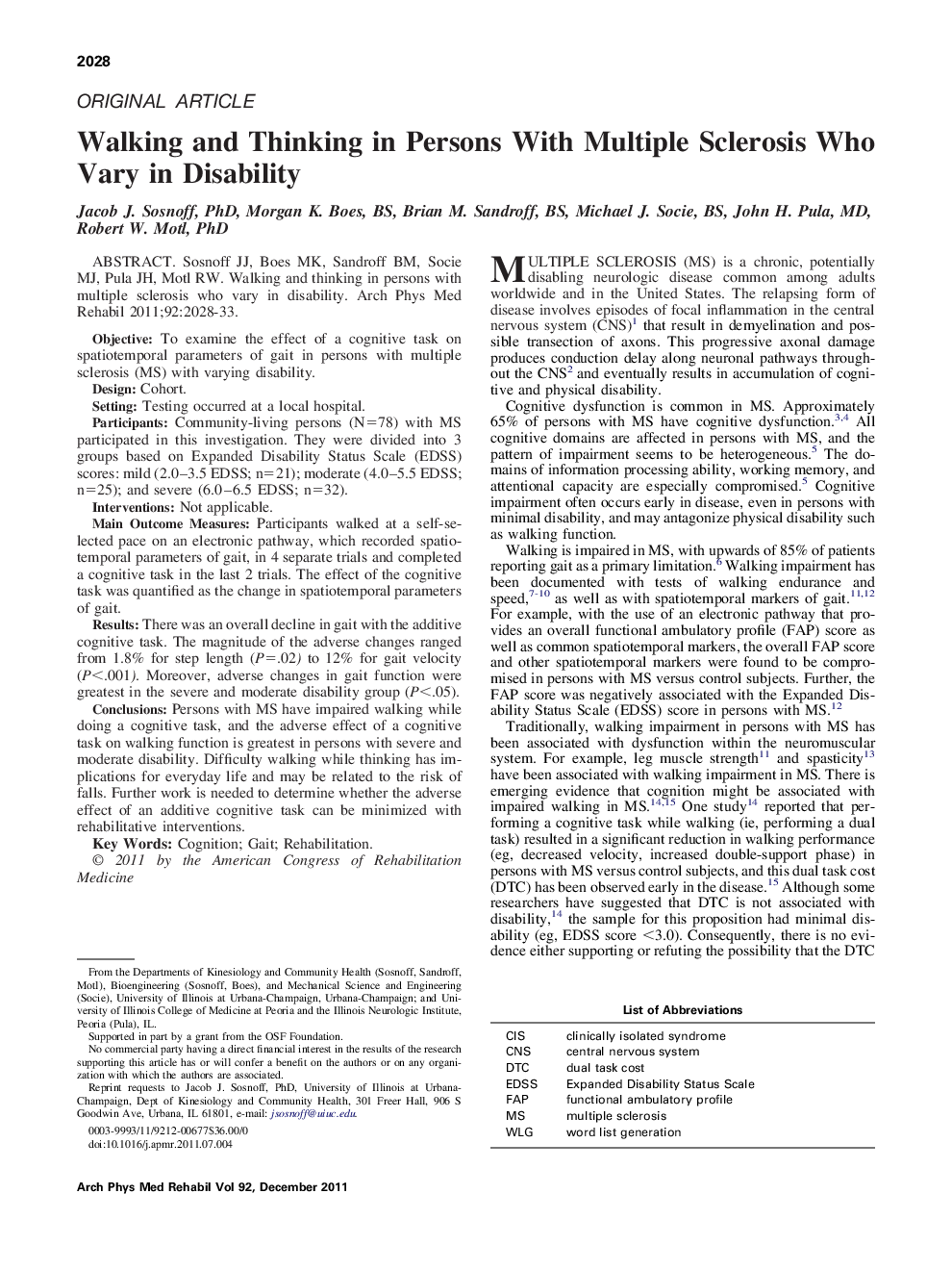| Article ID | Journal | Published Year | Pages | File Type |
|---|---|---|---|---|
| 3450356 | Archives of Physical Medicine and Rehabilitation | 2011 | 6 Pages |
Sosnoff JJ, Boes MK, Sandroff BM, Socie MJ, Pula JH, Motl RW. Walking and thinking in persons with multiple sclerosis who vary in disability.ObjectiveTo examine the effect of a cognitive task on spatiotemporal parameters of gait in persons with multiple sclerosis (MS) with varying disability.DesignCohort.SettingTesting occurred at a local hospital.ParticipantsCommunity-living persons (N=78) with MS participated in this investigation. They were divided into 3 groups based on Expanded Disability Status Scale (EDSS) scores: mild (2.0–3.5 EDSS; n=21); moderate (4.0–5.5 EDSS; n=25); and severe (6.0–6.5 EDSS; n=32).InterventionsNot applicable.Main Outcome MeasuresParticipants walked at a self-selected pace on an electronic pathway, which recorded spatiotemporal parameters of gait, in 4 separate trials and completed a cognitive task in the last 2 trials. The effect of the cognitive task was quantified as the change in spatiotemporal parameters of gait.ResultsThere was an overall decline in gait with the additive cognitive task. The magnitude of the adverse changes ranged from 1.8% for step length (P=.02) to 12% for gait velocity (P<.001). Moreover, adverse changes in gait function were greatest in the severe and moderate disability group (P<.05).ConclusionsPersons with MS have impaired walking while doing a cognitive task, and the adverse effect of a cognitive task on walking function is greatest in persons with severe and moderate disability. Difficulty walking while thinking has implications for everyday life and may be related to the risk of falls. Further work is needed to determine whether the adverse effect of an additive cognitive task can be minimized with rehabilitative interventions.
